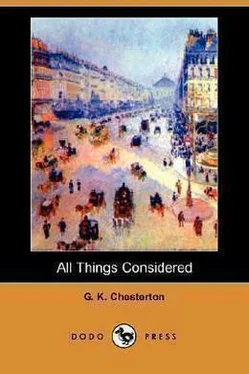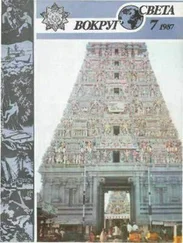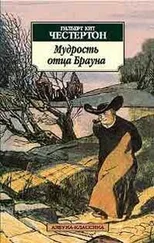Now, whether torturing an animal is or is not an immoral thing, it is, at least, a dreadful thing. It belongs to the order of exceptional and even desperate acts. Except for some extraordinary reason I would not grievously hurt an animal; with an extraordinary reason I would grievously hurt him. If (for example) a mad elephant were pursuing me and my family, and I could only shoot him so that he would die in agony, he would have to die in agony. But the elephant would be there. I would not do it to a hypothetical elephant. Now, it always seems to me that this is the weak point in the ordinary vivisectionist argument, "Suppose your wife were dying." Vivisection is not done by a man whose wife is dying. If it were it might be lifted to the level of the moment, as would be lying or stealing bread, or any other ugly action. But this ugly action is done in cold blood, at leisure, by men who are not sure that it will be of any use to anybody—men of whom the most that can be said is that they may conceivably make the beginnings of some discovery which may perhaps save the life of some one else's wife in some remote future. That is too cold and distant to rob an act of its immediate horror. That is like training the child to tell lies for the sake of some great dilemma that may never come to him. You are doing a cruel thing, but not with enough passion to make it a kindly one.
So much for why I am an anti–vivisectionist; and I should like to say, in conclusion, that all other anti–vivisectionists of my acquaintance weaken their case infinitely by forming this attack on a scientific speciality in which the human heart is commonly on their side, with attacks upon universal human customs in which the human heart is not at all on their side. I have heard humanitarians, for instance, speak of vivisection and field sports as if they were the same kind of thing. The difference seems to me simple and enormous. In sport a man goes into a wood and mixes with the existing life of that wood; becomes a destroyer only in the simple and healthy sense in which all the creatures are destroyers; becomes for one moment to them what they are to him—another animal. In vivisection a man takes a simpler creature and subjects it to subtleties which no one but man could inflict on him, and for which man is therefore gravely and terribly responsible.
Meanwhile, it remains true that I shall eat a great deal of turkey this Christmas; and it is not in the least true (as the vegetarians say) that I shall do it because I do not realise what I am doing, or because I do what I know is wrong, or that I do it with shame or doubt or a fundamental unrest of conscience. In one sense I know quite well what I am doing; in another sense I know quite well that I know not what I do. Scrooge and the Cratchits and I are, as I have said, all in one boat; the turkey and I are, to say the most of it, ships that pass in the night, and greet each other in passing. I wish him well; but it is really practically impossible to discover whether I treat him well. I can avoid, and I do avoid with horror, all special and artificial tormenting of him, sticking pins in him for fun or sticking knives in him for scientific investigation. But whether by feeding him slowly and killing him quickly for the needs of my brethren, I have improved in his own solemn eyes his own strange and separate destiny, whether I have made him in the sight of God a slave or a martyr, or one whom the gods love and who die young—that is far more removed from my possibilities of knowledge than the most abstruse intricacies of mysticism or theology. A turkey is more occult and awful than all the angels and archangels In so far as God has partly revealed to us an angelic world, he has partly told us what an angel means. But God has never told us what a turkey means. And if you go and stare at a live turkey for an hour or two, you will find by the end of it that the enigma has rather increased than diminished.








